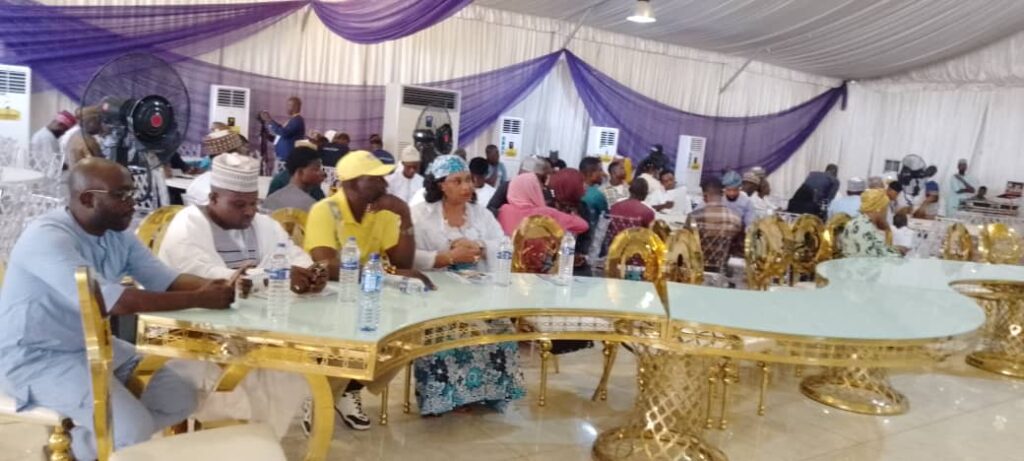Nigerians have been urged to reclaim the country’s democratic institutions from the grip of political and economic elites who continue to weaken state structures for personal gain.
The charge was made on Sunday in Ilorin, the Kwara State capital, by Associate Professor AbdulMumin Yinka Ajia, during the 2025 Annual Colloquium, where prominent scholars, civil society actors, students, and advocates of good governance gathered to interrogate the current state of Nigeria’s democracy.
Ajia, the convener of the event, warned that Nigeria is facing a critical threat of state capture, where democratic institutions no longer serve the people but the interests of a powerful few. He stated that democracy in Nigeria is not failing because people have stopped voting, but because those entrusted with defending institutions are actively subverting them. He lamented that elections, inaugurations, and political promises have become empty rituals, detached from the real needs of citizens, and urged Nigerians not to allow democracy to become a façade.
According to him, institutions are now being captured not by military juntas but by civilian elites who have turned public agencies into tools for regime protection. He decried the declining state of the country’s key democratic institutions, including the judiciary, security agencies, and the electoral commission, citing conflicting court judgments, compromised law enforcement, and questions over electoral integrity as evidence of a deeper democratic crisis.
“When INEC cannot guarantee credible elections, when the police protect those in power instead of the people, and when civil servants serve party interests rather than the public, then we are not in a true democracy—we are in civilian authoritarianism,” Ajia said.
Despite the bleak outlook, he expressed hope that change is possible, pointing to the growing civic consciousness across the country, particularly among young people, civil society organisations, and emerging political movements such as the African Democratic Congress (ADC). He described the rise of credible opposition platforms like the ADC as a sign that democratic renewal is not only possible but already underway. He noted that the Colloquium, now in its second year, is designed to stimulate civic action and thought leadership around democracy, governance, and institutional reform, describing it as a rallying point for citizens to reclaim ownership of the democratic process.
Veteran politician and public affairs analyst, Akogun Iyiola Oyedepo, who also spoke at the event, said Nigeria is experiencing a mere illusion of democracy, where elections are conducted without the substance of true democratic governance. Delivering a thought-provoking paper titled “Elections Without Democracy”, Oyedepo questioned the authenticity of Nigeria’s democratic credentials. He argued that what Nigeria practices is not democracy but elite domination disguised as elections, and described the outcome of past elections as a conspiracy by the elite to install governments that serve their narrow interests.
He lamented that despite seven general elections since 1999, none could be described as truly free, fair, or reflective of the people’s will. He singled out the 2007 general elections under former President Olusegun Obasanjo as the worst in Nigeria’s Fourth Republic, describing them as the antithesis of democracy. Oyedepo noted that Nigeria’s democracy was never genuinely birthed by the people. Unlike the American model, where visionary leaders convened to form a union, Nigeria’s version was crafted in secrecy by a coalition of military, business, and academic elites, leaving the people as mere spectators.
He warned that democracy in Nigeria is becoming an empty shell, where elections serve only to legitimise the grip of a few on political power. He cited ballot snatching, vote buying, and the manipulation of electoral bodies as examples of how elections are rigged to produce predetermined outcomes. “Elections in Nigeria have become a ritual without meaning. What the gun could not achieve, a flawed election now delivers. If the people are unable to express their will through voting, then we have elections without democracy,” he declared.
He also faulted Nigeria’s political party system, describing it as ideologically barren and dominated by moneybags. He lamented that the absence of internal party democracy and the influence of political godfathers have turned parties into private enterprises that serve selfish interests. He called for a complete overhaul of Nigeria’s democratic values and structures, asserting that the current system has failed to deliver good governance to the people.
Tanko Yunusa, the National Interim Coordinator of the Obidient Movement, also criticised the current state of democracy in Nigeria, saying it no longer serves the people but rather favours the powerful and wealthy, while marginalising the masses. He questioned how a system where people need to know someone influential to access jobs could be called a democracy.
Yunusa accused the government of destroying democracy by ignoring the principles of transparency and accountability. He said citizens remain in the dark about how public funds are spent, stressing that a democracy without accountability is nothing more than a smokescreen.















